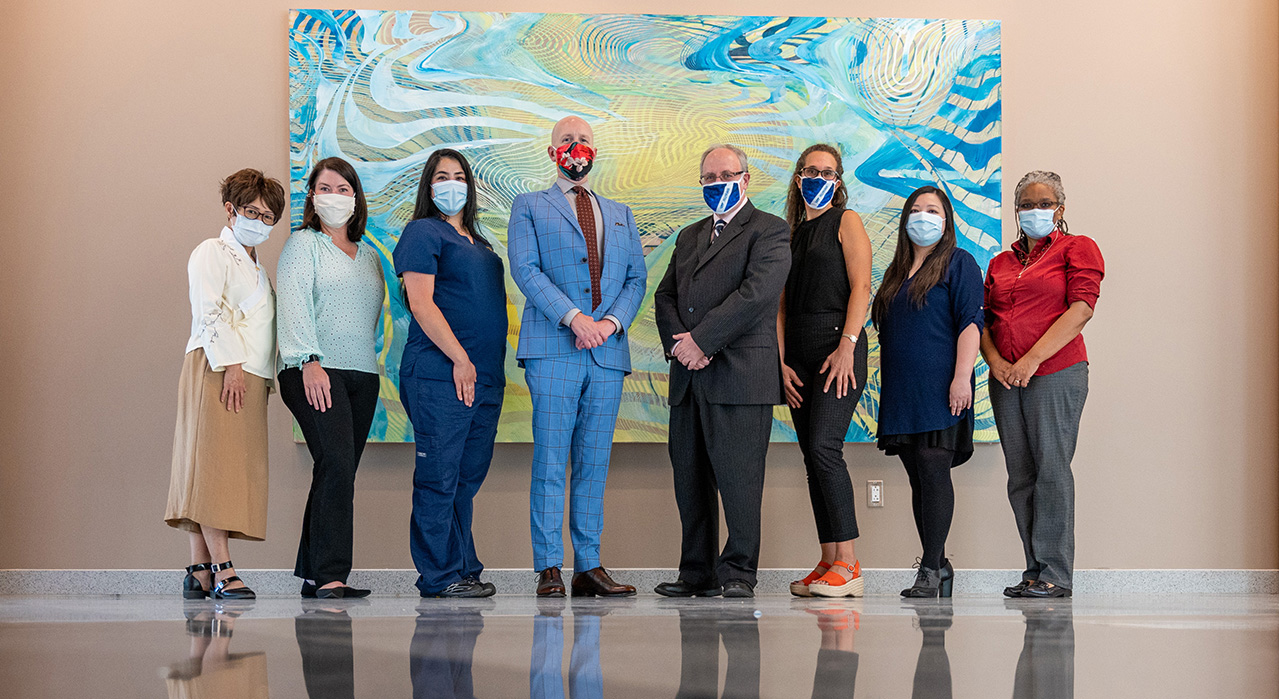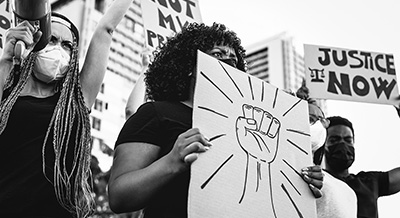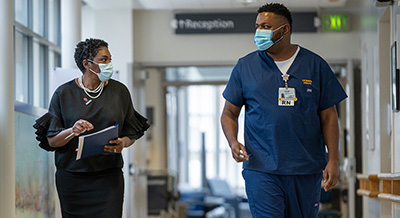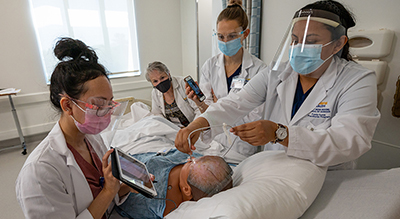April 2021 ended bittersweet for Jann Murray-García and Victoria Ngo. Their first wave of work to combat discrimination and inequality in the clinical setting had come to an end.
A need first identified by Black nurse leaders after the death of George Floyd became eight three-day trainings at UC Davis Medical Center from September to April. One hundred nurse leaders, in small groups of 15 or fewer, acquired new tools to identify biases in practices and policies to prevent unknowingly discriminating against patients.
“Mr. Floyd’s killing created a different level of motivation for folks to be a part of change that we can sustain,” explains Murray-García, an expert on race and health and an associate professor at the Betty Irene Moore School of Nursing at UC Davis. “We encourage participants, within this supportive, non-judgmental community, to see how our efforts may contribute to racially unequal outcomes and health disparities.”
Murray-García, who has led community-based education and cultural understanding at the school since its launch in 2010, says individuals and institutions must look for their hidden scripts. Those scripts are the cultural identities, family experiences, traumas, intersecting histories, and languages that shape interactions, inform values and influence policies.
By cultivating the skill of identifying such scripts, she contends clinicians can interrupt them in a spirit of Cultural Humility, an internationally recognized approach to equitable and culturally respectful patient care co-founded by Murray-García. To help nurses interrupt these scripts, Murray-García’s team developed the Anti-racism and Cultural Humility Training (ARC) at UC Davis Health.
“The personal identity exercise reinforced for me how whiteness is the established standard in our culture and how my fellow colleagues, friends and community members who do not identify as white think about their race as part of their identity on a daily basis,” says Joleen Lonigan, executive director of Patient Care Services at the hospital. “This has changed my interaction with colleagues as it opens dialogue and problem solving.”
Toby Marsh, chief nursing and patient care services officer, recognized the experience is crucial to advancing the hospital’s health equity efforts. He invested in this partnership and required the immersive training for the hospital’s nurse leaders.
“As nurses and clinicians, we must advocate and speak up against racism, discrimination and injustice. That is integral to the well-being of our patients and their families, but also for our staff, students and faculty. I wanted to elevate this importance by having our nurse leaders take the training first, so that their experience could benefit every member of our nursing staff at UC Davis Health,” Marsh says.
“One of the strengths about our training is that we have three days together,” adds Ngo, a postdoctoral scholar and doctoral alumna of the School of Nursing, who played an integral part in developing and implementing the ARC training. “In our very busy lives, it’s hard to even find time to have lunch with people. To have a safe space to practice the awkward, clunky dialogue of race in our nation is so precious.”
As evaluation researcher, Ngo explored and documented the program’s strengths and how participation led to a more equitable institution. Data from the medical center sessions indicates participants found the training useful and are applying it to their everyday work.
“I now take pause before responding in most cases as I am aware of my own bias and how that may impact the relationship,” says Darrell Desmond, a nurse manager who took the training. “I also am able to see things from my colleague’s lens, which has increased my ability to relate, understand and support them.”
Positive word of mouth sparked interest from other units within UC Davis Health. Trainings for School of Nursing faculty and staff are underway with the ambulatory care team planned for later this year. A six-month fellowship is in development. Organizations external to UC Davis Health also expressed interest.
The road ahead is steep, but Murray- García says progress is being made.
“I look at it as what we can each do within our sphere of influence,” she says. “My grandfather never saw the racial progress he worked so hard for and that I am now living. It’s our part in our time, where we are. That’s how change happens.”
Supporting Educational Excellence in Diversity
In order to achieve health equity, health care providers must be able to meet the unique cultural, social and communications needs of their patients. Cultural humility and diversity are considered critical elements in that quest.
The UC Davis Health Office for Health Equity, Diversity and Inclusion launched a training program for faculty in 2020. Supporting Education Excellence in Diversity (SEED) is a four-part hybrid course for faculty. SEED reinforces the value of cultural humility in teaching. The course also highlights phenomena like stereotype threat and microaggressions, which impede learning and performing. Participants also develop communication skills to navigate difficult interactions in a way that upholds principles of community and promotes an inclusive climate.
“Our goal is to help faculty recognize and address implicit bias in their teaching materials, identify and implement strategies to help them promote a positive learning environment, and do so in a safe and collegial space,” says Piri Ackerman-Barger, School of Nursing associate dean for Health Equity, Diversity and Inclusion.
All School of Nursing faculty are expected to take the training. Those who have completed the course report statistically significant improvements in these areas.






